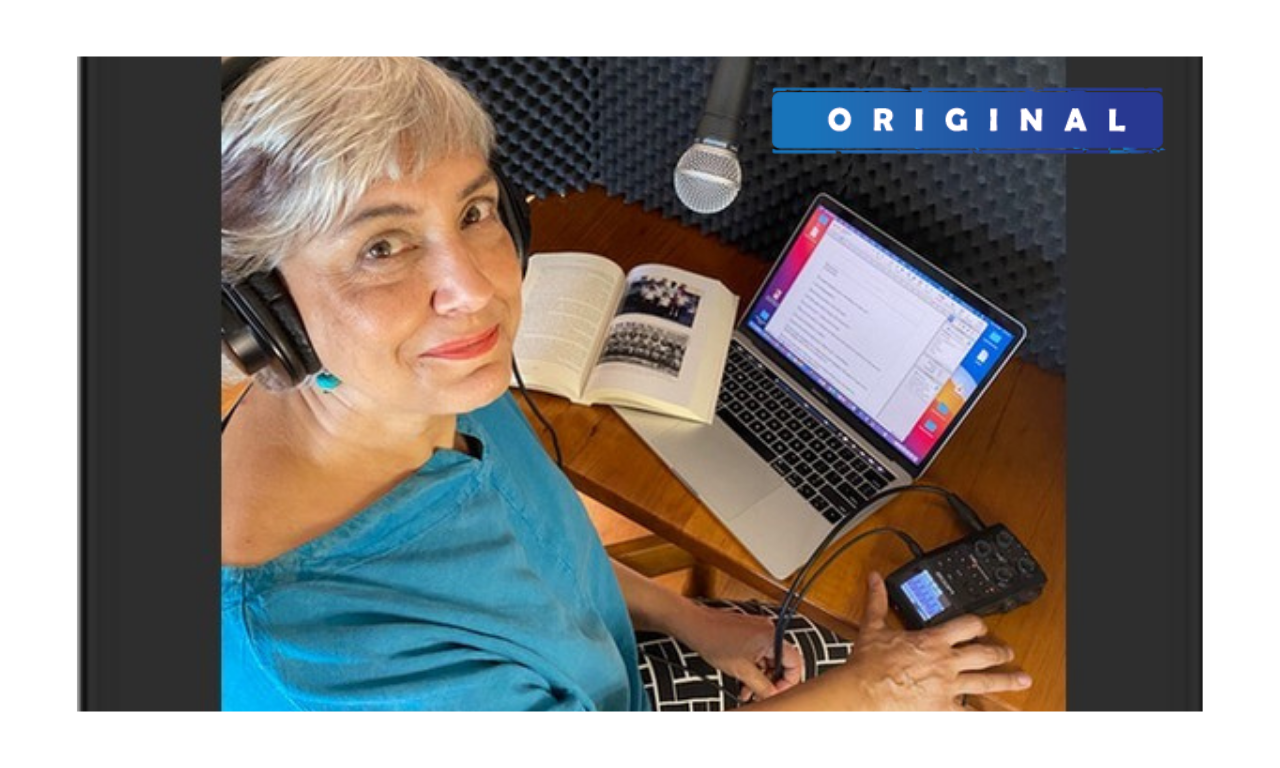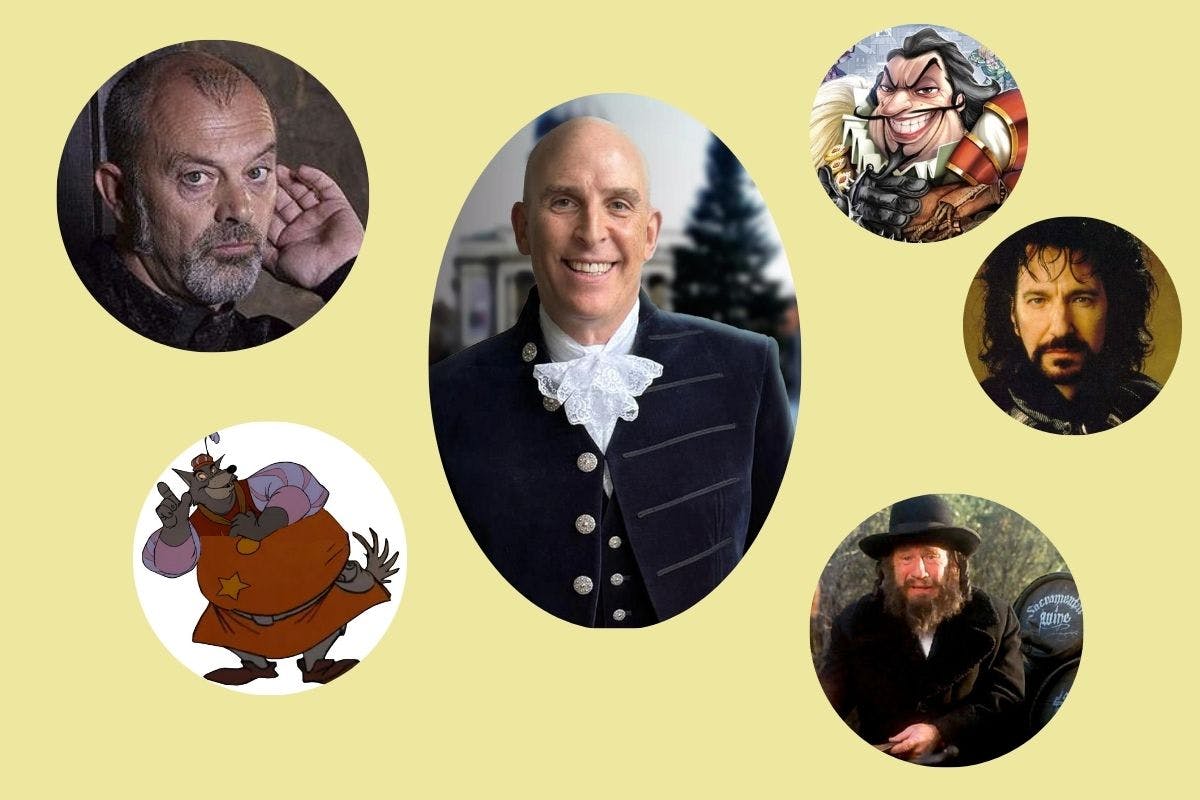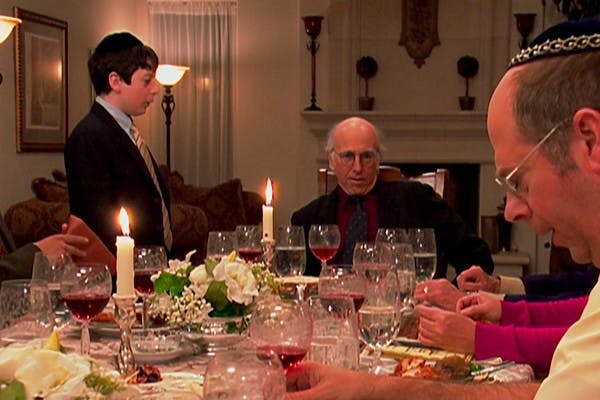Published: 29 October 2021
Last updated: 5 March 2024
AVIVA LOWY: Determined to make the most of her enforced isolation, Caroline Baum turned her fascination with other people’s lives into a podcast as eclectic as it is popular
“I READ BIOGRAPHY as a kind of high-brow self-help. It’s how not to live your life. Or how to live your life and get over terrible circumstances of privation or tragedy or loss,” says bibliophile Caroline Baum.
“I love reading about other people we perceive as successful, and finding that they have faced the same mental health challenges and the same worries about money as the rest of us. It’s the connective tissue that I find with biography.”
Speaking from her home on the NSW south coast, Baum is talking to me about her podcast, Life Sentences, which started this year and has already finished its second series. A third, summer series will kick off in December, with a fourth planned for early next year. Baum is nothing if not prolific.
She is well known as an author and literary interviewer who has been the face of book programs and presenter at writers’ festivals around the country (and also a regular contributor to The Jewish Independent). In this venture, however, she’s restricted herself to Dewey number 921 on the library shelves: biography.
While podcasts are sprouting everywhere these days, Baum hadn’t entertained the idea of doing one until the pandemic threw a spanner into her own biography writing ambitions.
“I was meant to go to France in 2020 to continue researching a biography of Lucie Dreyfus, the wife of Alfred Dreyfus, which has been causing me enormous difficulty for several years, but I decided I would go back and have another crack at it. The trouble with Lucie Dreyfus is, I can’t do it remotely because most of what I need has not been digitised,” she says.
Unable to get on a plane, she decided to, “invent a Covid project which gives me permission to interview lots and lots of biographers and ask them for tips”, so when international travel resumes, she’d be more prepared for the task.
“And then I was lucky enough to get Job Keeper. I thought, I don’t want to use this money just to live, I want to look back and say, during Covid, I made this thing, this entity.”
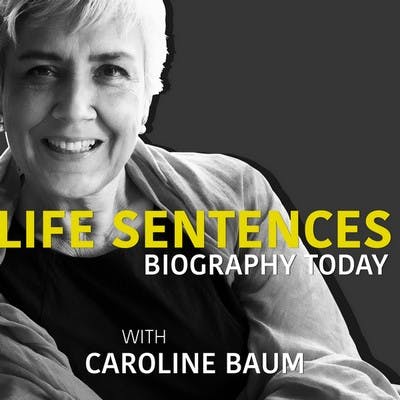
Just as Covid had hobbled her travel plans, Baum found that everybody else was grounded as well. “So whenever I contacted a biographer, they weren’t going anywhere, they had nothing to do. No one has said ‘no’ to me.”
Given that she reads biography as a ‘user’s manual’ on how to overcome life’s obstacles, I ask Baum what happens if the subject has had a charmed life, rather than a difficult one. Can the story of someone such as the pre-eminent British playwright, Tom Stoppard, who is famous for thinking himself a lucky man, still be interesting?
“From the time he wrote Rosencrantz and Guildenstern, he took off, and he’s enjoyed fame and wealth. Success has built on success from an early age. But biographer Hermione Lee points out that all of that starts with the tragedy of his family fleeing the Nazis with the invasion of Czechoslovakia.
“He discovered very late in life that he was Jewish. His mother had brought him out of Czechoslovakia, first to India and then, at the age of eight, to Britain, where he donned Englishness with a vengeance, as we know so many Jewish refugees did. She didn’t want him to inherit that trauma and she completely hid it from him.
I love reading about other people and finding they have faced the same mental health challenges and worries about money as the rest of us.
“When he discovered he was Jewish she was deeply uncomfortable about it. Just before turning 80, he’s produced this play, Leopoldstadt, which is about the panorama of loss of his family that perished in the camps.
“Even the most gilded life has a kind of corrosion of sadness, or a tarnishing of some other kind, but you have to go and look for it,” says Baum.
If a life itself tells the story, is all that’s left for the biographer to dig around and find those facts? Can any good researcher or writer bring a person to life?
“I think it’s partly a question of stamina. Every journalist knows how to sprint, but does every journalist have the capacity for the marathon? Heather Clark writing the most stupendous literary biography I think I’ve ever read on Sylvia Plath; that’s eight years of her life, digging into a brief blazing life of just 30 years. That’s an absolutely epic amount of time to devote in a single-minded, focused way to someone.”
Another one of Baum’s interviewees who set themselves to the task of really ‘excavating’, as she puts it, is Australian journalist Mark Mordue, whose highly-regarded biography of the musician Nick Cave took 10 years of his life - and that’s only volume one. Was Mordue’s own life subsumed by the task?
“I think that biography nearly took him down, but at the same time, it seems to have saved him as well. It gave him purpose and focus when his marriage had broken up.” Added to his personal woes, as a self-employed journalist, Mordue was broke.
“He was finding that work was thin on the ground and he was really scraping. I appreciate his frankness and his candour in that interview. It absolutely stands out.”
Unlike general literature, where readers choose books by authors, the lure of a biography is the subject. Has Baum picked up any books, thinking, I’m not interested in this person’s life, but been turned around?
“Absolutely! In the first series, I thought I have to have a sports biography. I can’t make this all literary and high falutin. I’ve got to get down and dirty. I did a sports biography of a 1980s Pacific Islander rugby league player called Olsen Filipaina because Amanda Smith, who presents Sporty on ABC Radio National, had said to me, it’s the best sports biography I’ve read. She was 100% right.
Even the most gilded life has a kind of corrosion of sadness but you have to go and look for it.
“Because that is not the story of a rugby league player; that is the story of Maori Islander culture and the strong bonds of filial obligation that require an athlete to send money home to his parents if he’s lucky enough to score a gig playing in Australia. It’s about so much rich heritage that I was completely unfamiliar with, and it’s written in this lively and engaging way.”
Another biography Baum had initially been reluctant to cover was Patrick Mullins’ epic on former Australian Prime Minister Billy McMahon, which is over 900 pages long. “Who in their right mind would want to read that? Now, I did skip a bit. I didn’t read every detail about every single piece of legislation.
“But it is a towering achievement and is also, at times, quite funny. I learned a lot of Australian history that I didn’t know, and this from a biographer in his 30s. It’s his first biography and it goes on to win the national biography award. I mean, how could you not want to at least have a bit of a look at it?”
Baum has noticed that far more women are writing biographies of women, including those who are obscure and forgotten. One such is English author Anne Sebba’s book on American woman Ethel Rosenberg who, with husband Julius, was found guilty of espionage for the Russians in the 1950s and executed.
The biography separates Ethel from Julius so that it’s no longer the case of thinking about the Rosenbergs together.
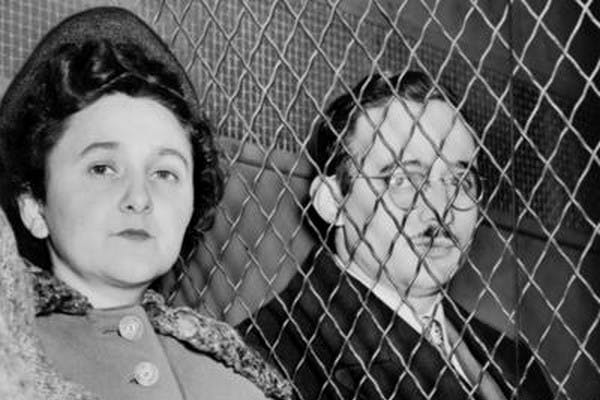
“The story of Ethel Rosenberg is mythic and has relevance for us today, at a time when renewed paranoia about spying is at an all-time high, albeit a different kind of spying. I found her story gripping and very disturbing.
The author comes to the conclusion that Ethel was innocent when she was electrocuted as the mother of two small children, and that her husband Julius was definitely a spy. She was sacrificed by the Americans in the hope that would break her husband into confession.
“The great thing about the biography is that it separates Ethel from Julius so that it’s no longer the case of thinking about the Rosenbergs together. She has her own extraordinary story, really deserving of attention. I just worry about these stories being forgotten.”
“A lot of people find history overwhelming and think, I’m going to have to read about wars and generals and big sweeping decisions. Biography is the human way into history. We have to keep remembering our past. We have to look at why we are where we are in relation to the past. And for me, biography is the most accessible way to do that.”
Photo: Caroline Baum at work in the studio (supplied)
